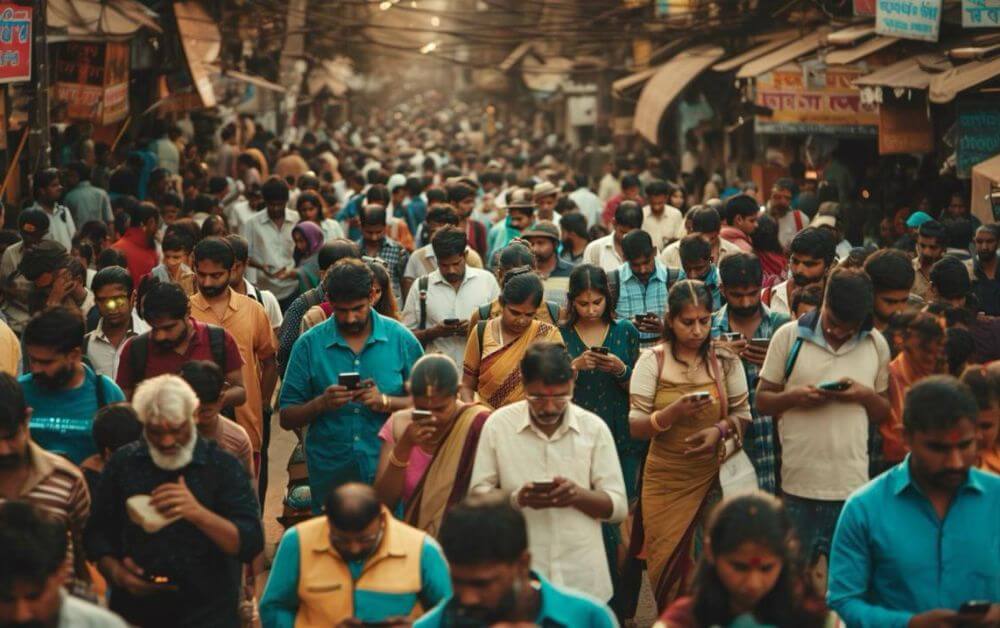Imagine the Indian elections in 2052 taking just 5 minutes to process, rather than the 6 weeks it takes this year. The vision is of digital first, ubiquitous, secure, personal technology connections in every sector and industry, reducing friction, demolishing time scales, and flattening barriers.
What do you think about this fast-paced election system? Could this digital transformation strengthen democracy, or might it bring new challenges?
As we look at this futuristic scenario, let’s consider how embracing a digital-first approach could transform not only politics but also how businesses interact with us today.
TRANSCRIPT
Welcome to 2052, and this year’s Indian elections. Just hang on a moment. Yes, the elections are about to begin, and there we go. Elections have started, and excellent, we have the results now. We now know who India’s new Prime Minister will be.
Do you remember back in the 2020s, when it used to take India nearly six weeks in order to go through a full election cycle in the world’s largest democracy. Then in the 2040s, we spent two elections pioneering and testing out this new electronic system and making sure that we ran the electronic system alongside the old-fashioned vote counting, just to make sure that everybody had confidence in the system.
But here in 2052, we just have the option of using the biometric data in our phones to verify that we are who we say we are, and what we’ve done is we’ve made sure that everybody pauses. There’s one day in fact, one moment where everybody pauses, does their duty, takes their responsibility as a citizen of the world’s largest democracy, casts their votes, and then we get on with it because we have the results immediately available. In fact, because it’s India, we take the day off, play a game of cricket, and celebrate our democratic responsibilities.
Look, I think actually by 2052, we’re probably not going to be using big clunky phones, but rather probably something embedded or in some wearable device. But this is ThrowForward Thursday, my name is Graeme Codrington, and I do believe that that is going to be the future of voting and the future of democracy, that we do it digitally and that we have the results almost instantaneously. And then the politicians can fight in court about it for weeks afterwards.
A lesson for us today is that we need to be moving even faster into a digital-first environment. Yes, the Internet, the World Wide Web, apps and smartphones have been around for a long time, but the number of companies who still have a woefully bad digital experience for their customers is astounding.
So the future invites us to imagine a world in which we are even more deeply immersed in our digital systems and our apps than we are today and invites those of you who are already behind to make sure you catch up fast.
ThrowForward Thursday, where we always find something interesting from the future and discover that it actually impacts us now. I’ll see you next week in the future again.
At TomorrowToday Global, we help clients around the world analyse major global trends, developing strategies and frameworks to help businesses anticipate and adapt to market disruption in an ever-changing world.
Subscribe to our team’s weekly newsletter filled with insights and practical resources to help you succeed in the future of work.
For all enquiries, please use this email: [email protected]
Graeme Codrington, is an internationally recognised futurist, specialising in the future of work. He helps organisations understand the forces that will shape our lives in the next ten years, and how we can respond in order to confidently stay ahead of change. Chat to us about booking Graeme to help you Re-Imagine and upgrade your thinking to identify the emerging opportunities in your industry.
For the past two decades, Graeme has worked with some of the world’s most recognised brands, travelling to over 80 countries in total, and speaking to around 100,000 people every year. He is the author of 5 best-selling books, and on faculty at 5 top global business schools.


